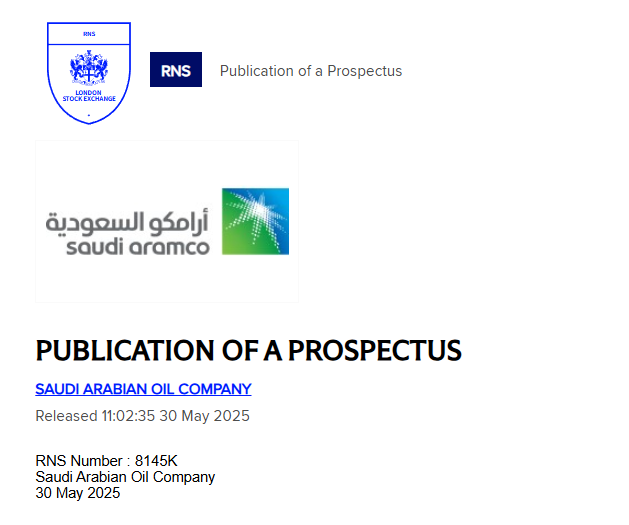On June 3, in response to the financial pressure brought about by the decline in crude oil prices, Saudi Aramco, the Middle East's oil giant, announced the completion of a $5 billion bond issuance. The issuance consisted of three tranches, with coupon rates of 4.75% (5-year), 5.375% (10-year), and 6.375% (30-year), respectively.

Ziad Al-Murshed, Saudi Aramco's Chief Financial Officer, stated that the bond issuance received "strong" market subscription, with global investors expressing confidence in the company's "financial resilience and robust balance sheet."
On May 30, Saudi Aramco released a prospectus for the issuance of Islamic bonds (Sukuk), indicating its plan to soon re-enter the debt market for financing.

Currently, the price of Brent crude oil stands at around $65 per barrel, a significant pullback from $82 in mid-January this year. The decline in oil prices has affected Saudi Aramco's profits, putting pressure on the company to maintain high dividends.

In Q1 2025, Saudi Aramco's net profit was approximately $26 billion, a year-on-year (YoY) decrease of about 4.6%. Its performance dividend was $200 million, far lower than the over $10 billion in Q3 2024.
As the major shareholder of Saudi Aramco, the Saudi government relies on related dividends to carry out the country's economic diversification projects. Limited dividend payouts will also constrain the government's fiscal spending capacity.
In the Islamic bond prospectus released on May 30, Saudi Aramco disclosed that as of the end of Q1 this year, its asset-liability ratio had risen to 5.3% from 4.5% at the end of last year.
During an earnings call in May, Al-Murshed mentioned that over the past three years, Saudi Aramco had significantly reduced its debt levels, but had started to "moderately increase leverage as planned since last year to optimize its capital structure."
Amin Nasser, Saudi Aramco's CEO, stated during the same call that current oil demand in the international market is strong, with global crude oil inventories at a "five-year low."
He also pointed out that OPEC's decision to increase production starting from May would drive Saudi Aramco's daily production to increase by 200,000 barrels. If oil prices remain at $60 per barrel, this increase is expected to generate approximately $1.9 billion in annual cash flow.
Last week, Saudi Finance Minister Mohammed al-Jadaan stated in a media interview that due to reduced oil revenues, the Saudi government would re-evaluate the pace of fiscal spending.
He mentioned, "The crisis provides us with an opportunity to assess and adjust," including whether projects are being advanced too quickly and whether related plans need to be postponed or rescheduled.